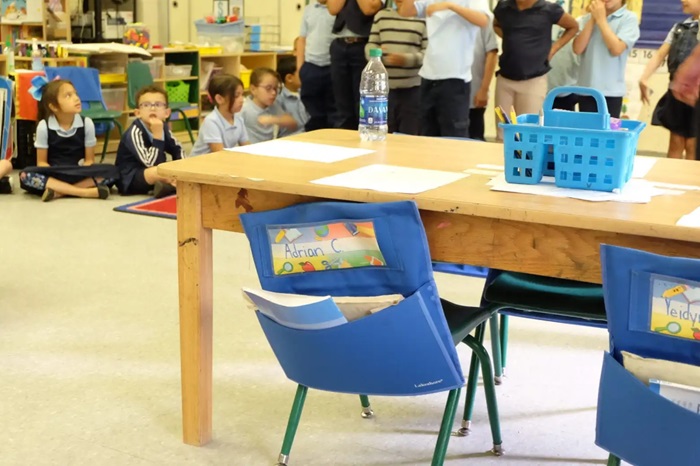Opinion
Voters overwhelmingly rejected the MCAS grad requirement. Here’s what should happen now.

We need a holistic measure of problem-solving, creativity, and other skills, not test-taking ability
By Dan French and Lisa Guisbond
November 14, 2024
NOW THAT THE public has definitively rejected MCAS as a graduation test, there is much pressure to create new graduation requirements. We at Citizens for Public Schools believe any major changes must come from public discussions centering the knowledge and views of those who will be called upon to implement these changes and those who will be most affected — educators, parents/guardians, and students from diverse communities as well as leaders of organizations representing historically marginalized groups.
The MCAS graduation requirement was imposed by officials far removed from the schools, supposedly for the benefit of low-income students, students of color, multilingual learners, and students with disabilities.
Those benefits never materialized.
In fact, those are the students who were most likely to be denied diplomas based on the tests.
This year, educators in the schools forced a public vote and the groups who supposedly benefited from the graduation test finally had a chance to say what they thought. They rejected the test by the widest margins in the state.
Next time, listen.
Reform efforts should work to level the playing field before students get to graduation.
Under the rule of MCAS, we have had equal, but not equitable, accountability in Massachusetts, but we are far from equal opportunity. Schools can’t compensate for the vast inequality of access to housing, jobs, or financial security, but they can offer equitable opportunities for learning.

That should be the focus going forward.
Assessment should foster the kind of teaching that helps students become successful adults. That means teaching problem-solving, creativity, collaboration, reasoning and analysis, and the ability to navigate complex situations.
A capstone project, for example, encapsulates these skills. The multiple choice questions and formulaic writing samples of standardized tests like MCAS push classroom instruction in the opposite direction.
You get what you measure, so let’s measure what we want to get.
Dan French is board president and Lisa Guisbond is executive director of Citizens for Public Schools, a statewide public education advocacy organization.

